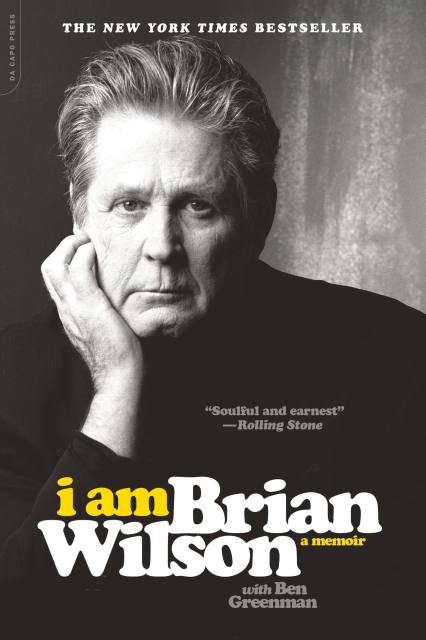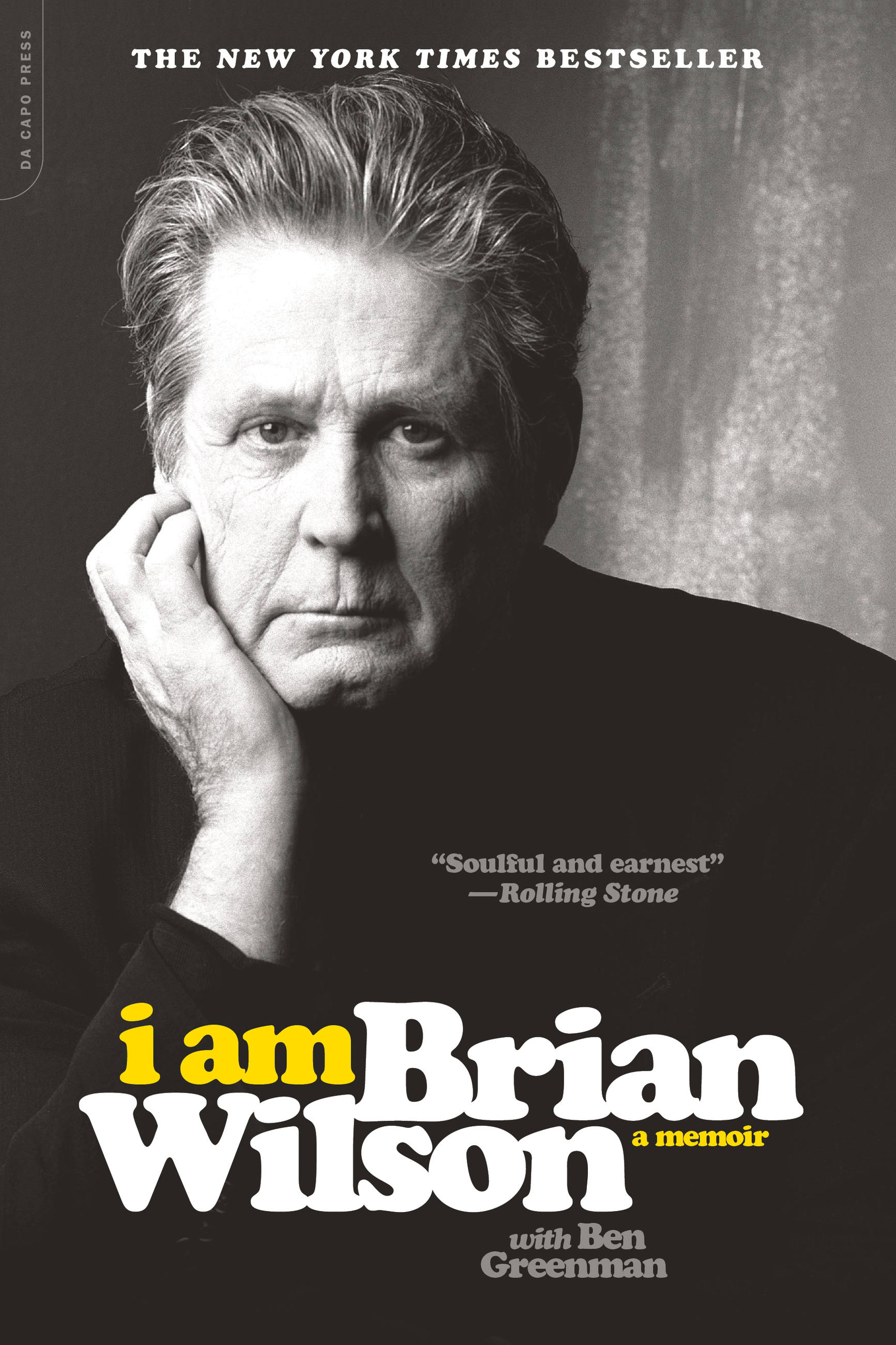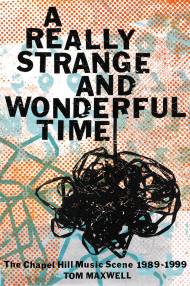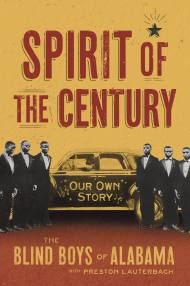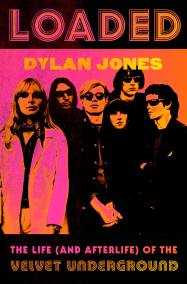Promotion
Use code MOM24 for 20% off site wide + free shipping over $45
I Am Brian Wilson
A Memoir
Contributors
By Brian Wilson
With Ben Greenman
Formats and Prices
Price
$12.99Format
Format:
- ebook $12.99
- Hardcover $39.00 $49.00 CAD
- Trade Paperback $19.99
This item is a preorder. Your payment method will be charged immediately, and the product is expected to ship on or around October 11, 2016. This date is subject to change due to shipping delays beyond our control.
Also available from:
As a cofounding member of the Beach Boys in the 1960s, Wilson created some of the most groundbreaking and timeless popular music ever recorded. With intricate harmonies, symphonic structures, and wide-eyed lyrics that explored life’s most transcendent joys and deepest sorrows, songs like “In My Room,” “God Only Knows,” and “Good Vibrations” forever expanded the possibilities of pop songwriting. Derailed in the 1970s by mental illness, drug use, and the shifting fortunes of the band, Wilson came back again and again over the next few decades, surviving and-finally-thriving. Now, for the first time, he weighs in on the sources of his creative inspiration and on his struggles, the exhilarating highs and the debilitating lows.
I Am Brian Wilson reveals as never before the man who fought his way back to stability and creative relevance, who became a mesmerizing live artist, who forced himself to reckon with his own complex legacy, and who finally completed Smile, the legendary unfinished Beach Boys record that had become synonymous with both his genius and its destabilization. Today Brian Wilson is older, calmer, and filled with perspective and forgiveness. Whether he’s talking about his childhood, his bandmates, or his own inner demons, Wilson’s story, told in his own voice and in his own way, unforgettably illuminates the man behind the music, working through the turbulence and discord to achieve, at last, a new harmony.
Genre:
-
Chicago Tribune, 10/11/16
“Wilson's book documents scattered memories and streamlines them into a series of impressions and anecdotes…Offer[s] valuable if unsettling insights into the personal dynamics inside an American band.”
AXS, 10/13/16
“Wilson goes beach-combing through the past, panning the sands of time for the socio-psychological seashells that gave rise to America's most successful singing group—and launched Wilson's lifetime bout with mental illness…Here Wilson recounts the good, the bad, the ugly, and the beautiful in the straightforward conversational tone of a mature, experienced man reclining in his Lay-Z-Boy, albeit tempered with his boyish enthusiasm (and melancholy).”
Dallas Morning News, 10/14/16
“An unflinching portrait.”
New York Journal of Books, 10/11/16
“Immediate, informal, and confessional…Behind the wholesome image of shy boys and cute girls in a world of eternal sunshine, the Beach Boys inhabited a much darker reality. Brian Wilson nails it in his latest memoir.”
The LA Beat, 10/13/16
“One of the most honest and forthcoming autobiographies ever written by a musician…As you start to read, you really feel less an observer, and more of a participant in [Wilson's] journey…If you only read one book this year, it should be Brian's book.” -
Publishers Weekly, 9/12/16
“[A] charming and powerfully written memoir that will engage a readership beyond the multitude of Beach Boys fans…Despite his fame and success, Wilson comes off as a genuinely modest and gentle soul…Wilson's emotional authenticity is beguiling as he takes readers deeply into his mind, voices and all, to describe his unique manifestation of musical genius.”
No Depression, 9/16/16
“Wilson's memoir offers a more sober glance at the spiritual and physical forces that haunt artists and that often drive them to produce the beautiful, sad, and relentlessly affecting music we often embrace…Wilson's memoir eventually grabs us at a deeper level than Love's. If you're looking for fun, fun, fun, pick up Love, but if you're searching for a more introspective, in my room, experience, pick Wilson.”
Canadian Living, 9/22/16
“In this tell-almost-all memoir, Brian Wilson candidly reflects on his struggles with family, substance abuse and mental illness and digs deep into the inspiration and meaning behind his music. It's a must-read for any fan of The Beach Boys—or the '60s pop scene, in general—with big-name music icons of the era (Phil Spector, Carole King, Paul McCartney) featuring in many of the stories.” -
Record Collector, Issue 459
“His recollections of the abuse he suffered at the hands of life-coach Eugene Landy and his father are told with such blunt economy that they are quite crushing. Wilson's equally candid and plainspoken about his work…There's a good deal of myth-busting.”
Goldmine, November 2016
“Wilson's memoir is streaked with melancholy…Wilson fans will find it a compelling book.”
Huffington Post, 10/12/16
“Wilson takes you on a journey into the life of a creative genius, exploring his turbulent life and creative influences and how, regardless of his inner and outer demons, there is always hope…I Am Brian Wilson: A Memoir isn't the kind of book you can read in a day. Like a summer vacation, you want it to last forever…As a memoir, honest and insightful. But it's very much a memoir of a musician. From reading this book, you'll gain a deeper appreciation for the man behind some of the world's greatest hits and for music in general.”
Forbes.com, 10/11/16
“Wilson sets the record straight…His voice definitely comes through…It is a wonderful insight into a troubled genius.”
-
Rolling Stone, 9/27/16
“Excellent…I Am Brian Wilson is soulful and earnest—like spending quality time with a gentle sage with an endearingly erratic attention span…Wilson is heartbreakingly blunt about his mental breakdowns and suffering at the hands of his father. He has startling insights into the music.”—Rob Sheffield
Time magazine, 9/29/16
“Disarmingly personal.”
Minneapolis Star Tribune, 9/29/16
“When you read his new memoir…you'll get an even deeper exploration into the mental illness and the rebound, the villains and heroes in his life.”
Wall Street Journal, 9/30/16
“As plain-spoken as its title. Here the band's presiding genius wanders over the terrain of his life as a son, father, husband and supremely gifted musician…Tell[s] us much that we didn't know…Suggest[s] how we might best view the artistic life—any life, really.”
Loud and Quiet, October 2016
“In I Am Brian Wilson, Wilson is unflinching in his rendering of the euphoric highs and chaotic lows that have made up the last seven decades. His and the Beach Boys' story has been told many times before and is one we may think we know already, but it has never before been voiced with the clarity, honesty and insight on offer here.” -
A New York Times, USA Today, and Publishers Weekly Best Seller!
Vanity Fair, September 2016
“I Am Brian Wilson slipstreams through the past like a message in a bottle…It has moments of personal testimony that are poignant and indelible.”
New York Post, 8/11/16
“1960s Beach Boy on mental illness, sorrow, drugs, destabilization, demons, turbulence and discord.”
Booklist, 9/1/16
“Music journalist Greenman helps keep this meandering memoir coherent and poignant.”
CNN.com, 8/24/16
“Plenty of authors have written about this Beach Boy and now he'll get his say.”
Rolling Stone, 9/8/16
“Wilson tells his own story: his battles with his abusive father, the pressure to score hits in the Sixties, and his long struggle with mental illness.”
Billboard, 9/3/16
“Wilson delves into his battle with mental illness and how he created the band's pioneering sound.”
-
The Scotsman, 10/15/16
“As much about Wilson's reclusive existence in the 1970s and '80s as it is about the heyday of his band…This is no misery memoir, however—the tone throughout is almost breezy; difficult subjects are dealt with honestly, but never in such detail as to become uncomfortable…I Am Brian Wilson succeeds in shedding new light on Wilson's remarkable life.”
Herald Scotland, 10/14/16
“This autobiography of one of the most creative minds in 20th century popular music is clearly worth the reading, but the fact that it turns out to be an eloquent witness for a 21st century approach to mental illness may ultimately be its greater value.”
St. Louis Post-Dispatch, 10/14/16
“[An] essential read for Beach Boys fans.”
Foreword Reviews, 10/20/16
“With the release of his memoir, I Am Brian Wilson, those who love the music and wonder about the man are afforded access into his thoughts and insights. In nonlinear and candid prose, Wilson discusses his music, yes, but also his battles with mental illness, his career highs and lows, and sprinkles these accounts with peeks into his fascinating worldview. The work is empathetic and raw; there is humility here, and ingenuity as well.” -
Esquire.com, 10/11/16
“A fascinating peek into the life and creative process of one of the 20th Century's most lauded songwriters and record producers…[An] intriguing glimpse into what makes one of rock's true legends tick.”
Parade.com, 10/10/16
“[Wilson] bares his heart and soul…He recalls the many personal and professional highs and the plentiful painful lows of his life and career.”
Publishers Weekly, 10/10/16
“In I Am Brian Wilson: A Memoir, the founder of the Beach Boys speaks candidly about his musical inspirations and mental illness…A wonderful gift to [his] fans.”
Houston Chronicle, 10/9/16
“In this honest and nonlinear memoir, one of rock ‘n' roll's greatest composers talks honestly about both his musical triumphs and his struggles with mental illness and substance abuse…For fans of the music, Wilson does dig deep into the inspirations and recording of albums.”
Psychology Today, 10/11/16
“[Wilson's] extraordinary journey is intimately described in his new memoir.”
Library Journal, 10/6/16
“Wilson's memoir digs deep, with fierce honesty from the opening pages.”
-
The Arts Desk, 10/16/16
“It's intriguing to get a Wilson's-eye view of his own legend—it's one of the great tales of the music business, after all…All the key elements of Brian's life are here…Where the book really lights up is when Wilson talks in detail about music. There are fascinating descriptions of the recording of "God Only Knows", the Pet Sounds, Surf's Up and Holland albums and the difficulties he had with the SMiLE material…When he analyses the influence of the Beatles, the Stones and Phil Spector, it evokes the extraordinary intensity of the mid-Sixties musical eruption that the Beach Boys were caught up in.”
Toronto Star, 10/15/16
“The book jumps through time, the drugs, the mental illness, the music, the love and the pain. It has charming asides.”
Maclean's, 10/16/16
“[The] book pulls no punches: Wilson openly discusses his five decades of mental issues, his struggles with an abusive father, drugs, alcohol and weight, his debilitating fears and his failures (and successes) as a husband, dad and bandmate.”
-
The Arts Fuse, 10/11/16
“Pleasures await the Wilson/Beach Boys fan, as Wilson recounts the making of the Beach Boys album (Pet Sounds) and song (‘Good Vibrations') he's proudest of and enthuses over his favorite non-Beach Boys album (the Beatles' Rubber Soul) and song (‘Be My Baby,' produced by Phil Spector), his favorite classical composer (Bach), and his influences…Wilson speaks at length about his mental illness, how it robbed him of the joy and optimism his music provided for so many people.”
ABC News Radio, 10/11/16
“Wilson talks candidly about his struggles with mental illness and drugs, while giving fascinating insight into the creation of many of The Beach Boys' beautiful, catchy and complex songs.”
New York Magazine's Vulture, 10/11/16
“The Beach Boys leader's story is well told by now, but reading his often blunt retelling is harrowing, especially as he describes years swaddled in drugs and alcohol, and controlled by the notorious Dr. Landy. But as much as the book delves behind the so-called madman, it also gets behind the genius. Wilson and writer Ben Greenman lay the story out simply and with limited sensationalism, including fascinating sections where Wilson recounts his creative process and the work behind so many classic songs.”
-
The Australian, 10/22/16
“Freakishly, genre-transcendingly good: a rock memoir of genius, if ever there was one…Brilliantly unusual, like Wilson himself…It gets his unique inner world on to the page intact…It's also illuminated, along the way, by sudden lightning-flashes of insight into the world of mental illness.”
National Post, 10/18/16
“The book's voice [is] plainspoken, earnest, prone to both anxieties and boyish excitement…[and] true to the man.”
The Guardian, 10/16/16
“A beguilingly honest account of what it is to be Wilson.”
Phoenix New Times, 10/17/16
“Reading I Am Brian Wilson is like having a conversation with Brian Wilson…It feels authentic…It's imperfectly flawless…This is the story of a hero as well as an artist, a genius, and a musician. He frankly portrays his mental illness from the beginning to his lowest depths to the heights he's at today…Famous people from the music world make appearances…In 300 pages Brian Wilson tells a tale that's as fascinating as any of his American sagas, a book that reads as much as a confessional as it does an act of catharsis.”
VICE's Noisey, 10/16/16
“Tells the harrowing, heartbreaking story of the life of Brian.” -
"Fascinating and intensely personal...The utter lack of pretense in the prose captures that familiar slightly flat, slightly sad, often rhapsodic voice with true authenticity...I Am Brian Wilson would fail as the Brian Wilson story if it did not deal with the darker corners of his life, and Wilson wanders through these areas fearlessly...Love, music, and an immensely sincere man's true voice are what you should expect and what I Am Brian Wilson delivers."Psychobabble, 10/21/16
-
"An unconventional but fascinating read...One gets a terrific feel for Brian Wilson as a person and how he both thinks about and is affected by music. This is one true joy of the book...In all, I Am Brian Wilson is as interesting a book as you'd want it to be. It's not a linear history. It's not a juicy tell-all. But it is a beautiful view into the brilliant and sometimes troubled mind of a true genius of American music."Under the Radar, 10/25/16
-
"Candid and tragic, yet in the end exquisitely triumphant and love affirming, I am Brian Wilson is the last (and only) word on Brian's all-too-written-about and over-analyzed past."Elmore, 10/25/16
-
"A book almost the opposite of Love's: forgiving, chaotically associative."New York Review of Books, 10/26/16
-
"A candid, heartfelt autobiography about a pop-music icon who managed to overcome dark influences that might have defeated someone less resilient."New York Times Syndicate, 10/11/16
-
"The book is kind of like his music-gentle, spiritual, lyrical-and provides the expansive commentary that Brian does not usually provide in interviews...It's also funny as hell in places...An altogether lovely read."The Suburban, 10/29/16
-
"He has worked with a ghostwriter, but anyone who has seen his spectacular solo shows or seen him interviewed will recognise the voice immediately: vulnerable, faltering, pained, unexpectedly funny...There is a candour and even a childlike openness to how he describes the battling voices in his head and the self-doubt and self-imposed pressure...Wilson's memoir has a weepily beautiful mellowness and a real poignancy that shines through the acrimony and wasted years."Sydney Morning Herald, 11/5/16
-
"The enigmatic Wilson documents the poetic lyricism, inspiration and creativity behind his vast discography while at the same time showing a man who is over-time coming to terms with his past...Extremely candid...You aren't going to find any other story like that of Brian Wilson's. Very rarely if ever will you find a person with Brian's notoriety be as truthful and forth coming as he is in this book."Media Mikes, 11/1/16
-
"Join the genius behind The Beach Boys as he takes a stroll down memory lane, revealing never-before-heard details about his upbringing with brothers Carl and Dennis, as well as his struggle with mental illness, drug use and more. In I Am Brian Wilson, the legendary surf rocker discusses how these hardships shaped the man he is today, and how he's learnt to forgive those who wronged him."Over Sixty, 11/3/16
-
"A frank and revealing portrait of a troubled and popular music pioneer...Worth reading if you are a fan of the Beach Boys, or enjoy reading about how even extreme mental difficulties can be faced, and if not overcome, at least lived with."Portland Book Review, 11/2/16
-
"The Beach Boys frontman has a fascinating story...He recounts the ups and downs of his life with candor."InStyle.com, 11/1/16
-
"[An] alternatingly sad and inspiring memoir."Downtown Magazine, 11/17/16
-
"Beach Boys fans finally get the scoop from the man himself...Provide[s] a crucial blueprint of the rise and fall of one of America's most interesting pop musicians. Wilson carefully answers questions that many die-hard fans have been wondering for years and doesn't shy away from exploring the darker, less glamorous side of being in one of the most famous American bands of all time."Memphis Flyer, 11/17/16
-
"The 312-page book...convey[s] Brian Wilson's way of thinking-mostly gentle, conciliatory, a little disjointed and tinged with resignation."Stockton Record, 11/17/16
-
"The Beach Boys legend once thought he just wasn't made for these times, but in his new memoir, he reflects on his brilliant career and his successful struggle against his personal demons."Los Angeles Times
-
"[Wilson] depicts mental illness candidly."Austin Chronicle
-
"In this candid testament, Wilson examines sources of his creative inspiration and reveals his mental and spiritual struggles, his highs and lows."RTE
-
"Filled with perspective and wisdom."Music Is My Sanctuary, Top 10 Music Books of 2016
-
"A patchwork of memories covering childhood through stardom with The Beach Boys, dark years of mental illness and the comeback he has enjoyed in recent years."Milwaukee Shepherd Express
-
"[Wilson] tells it his way, and that makes it better than any history I've read of the Beach Boys to date. His no-holds-barred admissions of his mistakes and triumphs are revealing and engaging...The book is also peppered with surprises."San Francisco Book Review
-
"[Wilson] weighs in on his extreme highs and lows."SouthCoast Today
-
undefinediHeartRadio
-
"A strange kind of surfing through the Beach Boy's interior life."The Guardian
-
"[Wilson] tell[s] his story in his own way...For Wilson admirers it's a gift from Brian, that, more than anything reveals a sweet, mentally troubled man for whom making music is like breathing for the rest of us."Lincoln Journal Star
-
"A page turner...If you're at all a fan, you need this book."Vintage Guitar
-
"Offer[s] some fascinating glimpses under the hood."New York Times Book Review
-
"[A] must-read for any Beach Boys fan, packed with never-before-seen personal photos and incredible anecdotes."Over Sixty
-
"[Wilson] tells his story with incredible intensity, candidness, and humor...It is as if we are having an extended and intimate conversation with Wilson...There has been a veritable avalanche of autobiographies and memoirs from aging rockers in recent years as they begin to contemplate their place in rock history. I Am Brian Wilson takes its hard-earned place in the front of these books. It is not to be missed."Washington Independent Review of Books
-
"Touchingly modest...From the start you know you're in for something special...Honest and affecting."The Spectator (UK)
-
"A fascinating story of one of the greatest music icons. Wilson tells his story of his life and music in a most gripping way. He gives background to many of iconic songs and shines light on the people he worked with. It is veritably the story of his songs. Music lovers will not be able to put it down once they start reading it."Washington Book Review
-
"Disarming...Co-author Ben Greenman has captured Wilson's voice so well every paragraph feels leavened by Wilson's sophisticated naiveté."TruthDig
-
"Astonishingly honest...A fascinating glimpse into the mind of one of the greatest songwriters who ever lived...This is a terrific book and will lay to rest all the untruths ever told about Brian Wilson...This is his story as he lived it. Any fan of Brian Wilson and the Beach Boys needs to read this."Curled Up with a Good Book
-
"If you're interested in pop music and the Beach Boys' place in music history, or you just love a good story of triumph and tragedy and surprising rebirth, you'll love this autobiography...It's a heck of a tale...The musical origins of [Wilson's] pop pocket symphonies run through these pages, as does his candid, guileless telling of damaged relationships and artistic failure...Highly recommended."Pacific Rim Review of Books
- On Sale
- Oct 11, 2016
- Page Count
- 336 pages
- Publisher
- Da Capo Press
- ISBN-13
- 9780306823077
Newsletter Signup
By clicking ‘Sign Up,’ I acknowledge that I have read and agree to Hachette Book Group’s Privacy Policy and Terms of Use
